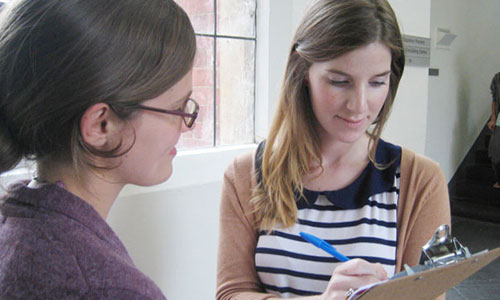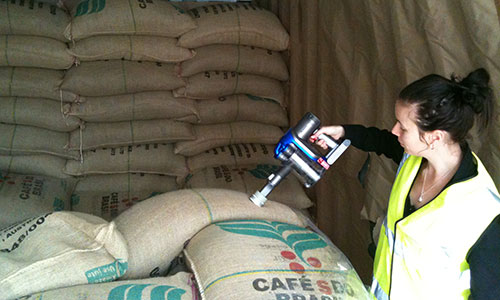Research and the SCC
The Statistical Consulting Centre aims to carry out statistical work that instigates and supports academic research in statistics and other disciplines. The following are examples of this working in practice.
The random effects method in meta-analysis has arisen in numerous consulting projects for pharmaceutical companies. As a result, Ian Gordon became aware of outstanding statistical issues in this area and designed a PhD project that Sarah Brockwell carried out. The title of her thesis was "An evaluation of practical methods for meta-analysis" and a resulting paper was "A comparison of statistical methods for meta-analysis" Statistics in Medicine , 2001: 20 :825 - 840. Earlier, Anne Solterbeck completed a Masters on meta-analysis supervised by Ian.

A project on analysing DNA profiles was carried out by Graham Hepworth. He became aware of deficiencies in an approach used to analyse such data through a consulting project, and began work on researching better statistical methods. This resulted in a University of Melbourne Early Career Research Grant entitled "Statistical methods for analysing DNA fingerprinting profiles", and the manuscript "Accounting for dependence in similarity data from DNA fingerprinting", which has been submitted for publication. Further papers are in preparation.
Sue Finch's background in psychology and teaching statistics generated her interest in better ways of communicating statistical ideas and learning about statistics. These challenges arise in consulting with users of statistics with a wide variety of backgrounds and from a wide range of disciplines. She has published papers describing how psychologists practise statistics and papers about better statistical practice.
A common requirement in the application of survival analysis to health economics is that estimates of mean survival are required; several instances of this need have arisen in SCC consulting projects. This is surprisingly problematic. Several staff members in the Department of Mathematics and Statistics have been working on this problem, and a manuscript entitled "Semi-parametric estimation of mean survival time" has been prepared.

The Centre provides help to over 200 postgraduates each year through the Statistical Consulting Centre. This is a very direct contribution to the research effort of the University, and in a survey carried out in 2005 of graduates researcher students, we had seen in 2004, according to the 143 GRs who responded, we had made a real contribution to 39 papers already published in refereed journals, and a similar contribution to 174 papers submitted for publication or in preparation. We asked whether we had made a contribution to their research that was "none", "a bit", "some" or "a lot", and 74% responded either "some" or "a lot".
Ian Gordon has had a long and ongoing collaboration with Professor Brian Buxton's group in the Department of Cardiac Surgery at Austin Health. This has led to a series of papers in which advanced statistical methods have been applied in the design and analysis of studies in heart surgery, including such techniques as survival analysis with interval censoring, and generalised linear mixed models; see Ian's publications for examples. The technique of propensity score adjustment has arisen in this work; Derchieh Hung did a Masters (supervised by Ian) on this topic while working in the Statistical Consulting Centre.

Sandy Clarke completed her PhD in 2010 supervised by Professor Peter Hall on “Some problems in the analysis of high-dimensional data”. Her Honours thesis on the topic of multivariate survival analysis, was inspired, in part, by the needs of the Cardiac Surgery group to analyse survival data with more than one outcome of interest, such as mortality and graft patency. Sandy’s recent research interests include the application of diagnostic testing and data mining approaches to problems of biosecurity risk in Australia, as part of collaborations with the University’s Centre of Excellence in Biosecurity Risk Analysis (CEBRA).
Consulting projects can result in joint research publications in which a Centre staff member is an author, because he or she has made a tangible contribution to the academic content of the paper. Many examples can be seen on the staff pages.